How does an Apple-branded product influence your opinion of the person who uses it? Can having a pet improve our health? Should we be worried about Facebook’s microtargeted political ads? How can we really know if someone is at risk to reoffend?
A lot of questions. ���ϳԹ���researchers are set to answer them all.����
With a wave of new grants from Canada’s Social Sciences and Humanities Research Council (SSHRC) by the Honourable François-Philippe Champagne, Minister of Innovation, Science and Industry, ���ϳԹ���will receive more than $1.5 million for research in the social sciences and humanities.��
“These new SSHRC-funded projects encompass a wide range of topics but are unified in their promise to deliver knowledge that helps us grapple with the challenges of our world,” said Alice Aiken, Dalhousie’s vice president research and innovation. “From research focused on helping frontline health care workers grieve, to new perspectives on the societal values that can underpin urban infrastructure, our researchers are opening up worlds of understanding that help us make sense of our lives and live them better.”����
New ���ϳԹ���SSHRC-funded projects include:
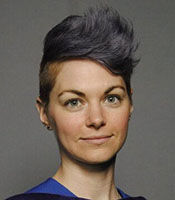 Julie Blais,��Department of Psychology and Neuroscience (cross-appointed with Law, Justice, and Society)
Julie Blais,��Department of Psychology and Neuroscience (cross-appointed with Law, Justice, and Society)
��
Predicting the risk to reoffend��
There is always a chance to get it wrong when predicting a person’s likelihood to reoffend. But it is a ubiquitous practice in both the criminal justice and forensic mental health systems. Dr. Blais says that to make better decisions we need to reduce the amount of informational “noise” that distracts prognosticators. She will assess the ability of a newly created risk communication nosology to reduce noise and personal bias with the goal of improving consistency in forensic decision making.��
, Continuing Professional Development & Medical Education��
Helping physicians and nurses find post-COVID solace��
Dr. Burm says that in the wake of the COVID-19 pandemic many frontline physicians and nurses are suffering burnout, experiencing a decreased sense of connection to their patients, colleagues, and vocation. Pushed to extremes dealing with death and loss in new and unforeseen forms, these professionals are challenged to find time to feel and process grief. Dr. Burm and team will explore the impact of COVID-19 to identify steps that can be taken to address the toll the pandemic has taken on health care workers.
 Sergio Carvalho, Rowe School of Business
Sergio Carvalho, Rowe School of Business
Exploring how brands bend perception��
In the current polarized socio-political climate, Dr. Carvalho and his co-investigators Drs. Justin McManus and Valerie Trifts assert that brands can signify deep-seated values and ideologies. He suggests thinking of a baseball cap, then then the same cap with the logos of Greenpeace or Donald Trump’s MAGA movement. He says the associations give rise to moral judgments of people who associate themselves with whatever cap they don. This also applies to consumer goods, think Apple vs. Samsung or Walmart vs Gucci.�� Dr. Carvalho will study the social signalling of brands and how they shape our biases in the world.��
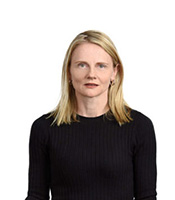 Susan Fitzgerald, School of Architecture
Susan Fitzgerald, School of Architecture
Revealing the hidden social dimension of infrastructure��
Spaces associated with the production of waste, water, energy, and food are typically only recognized as important for the services and commodities they produce, rather than the social equity they represent. Dr. Fitzgerald’s project, the Hidden Social Dimension of Infrastructure, aims to uncover qualities of infrastructural spaces that enable societal, cultural, and environmental exchange. She asks if infrastructures can foster a culture of care for the resources delivered by these systems and communities in which they are located.
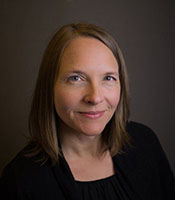 Niki Kiepek, School of Occupational Therapy
Niki Kiepek, School of Occupational Therapy
Getting an intimate understanding of substance use
Despite laws and pervasive public health messaging, people use drugs to transform their mental and physical states, from alcohol, to ecstasy, to opioids, to steroids. Dr. Kiepek wants to understand how substance use fits into peoples’ lives at a fundamental level. People who use substances, health professionals, and law professionals will depict substance use through photographs to form an intimate understanding of its complexities grounded in lived experiences.
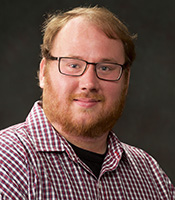 Scott Pruysers, Department of Political Science
Scott Pruysers, Department of Political Science
Gauging the threat of microtargeting to democracy����
When it was revealed that Cambridge Analytica harvested Facebook data of millions of Americans to target voters based on their unique psychological personalities, people were upset. Many feared that the growth of manipulative microtargeting would pose a serious risk to our democratic politics. But before we give in to fear, Dr. Pruysers says we need to empirically measure the ability of personality driven political ads to change attitudes and behaviour.
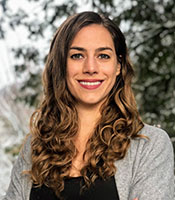 Alana Westwood, School for Resource and Environmental Studies
Alana Westwood, School for Resource and Environmental Studies
Closing the science-policy gap
Dr. Westwood says that decision-makers responsible for managing natural resources often lack timely science-driven information to make informed choices. There is an urgency to close the “science-policy gap” given the extremity of environmental challenges faced in Canada and globally. While much research has focused on the barriers to knowledge exchange, Dr. Westwood will focus on identifying tangible solutions in partnership with four universities, federal agencies and departments, and non-government organizations.
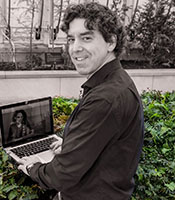 Kent Williams, Rowe School of Business
Kent Williams, Rowe School of Business
Strengthening Dalhousie’s Sustainable Development Goals��
Dr. Williams will lead the development of a case study at ���ϳԹ���to explore how the United Nation's Sustainable Development Goals can be linked to teaching, research, university leadership and management, and community engagement. He and his team will focus on shaping and growing an ecosystem within the university to tackle the climate crisis, inequality, and other sustainability challenges through community engagement and considerations of an Indigenous lens. The overarching goal is to create recommendations for action to answer the call of the UN’s 2030 Agenda for Sustainable Development.
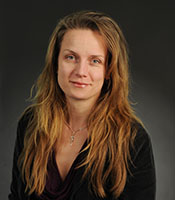 Dominika Wranik, School of Public Administration
Dominika Wranik, School of Public Administration
Learning what keeps Canadian public servants motivated for life
We all benefit from high quality public service which is enhanced when our public servants are enthusiastic in their roles. Dr. Wranik suggests we do not fully understand what keeps these workers performing at their best throughout their careers and how their performance is shaped by the dynamics of identity, career paths, and important events in their lives. Through first-hand analysis of public servants' experiences, Dr. Wranik and a multi-university research team will identify drivers of motivation that can inform the education, professional development, and human resource policies in the public service.
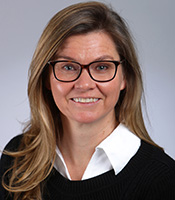 Tarah Wright, Department of Earth and Environmental Sciences
Tarah Wright, Department of Earth and Environmental Sciences
Leveraging art to create a sustainable future��
Dr. Wright says that while the science of our climate crisis is well known, solutions are impeded by societal norms.�� She says that a sustainable future is only attainable if we transform culturally and that we need to look to the Arts as a significant sector in leading this change. Her research will gather international researchers and artists to examine priorities for sustainability and the Arts. They will examine how artists and scholars can collaborate to tackle the environmental crisis and better understand and empower their actions.
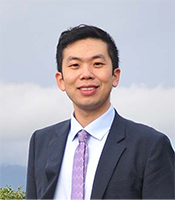 Haorui Wu, School of Social Work
Haorui Wu, School of Social Work
Exploring the benefits of human-animal interaction��
Relationships between humans and animals can have powerful effects in the reduction of loneliness and social isolation, says Dr. Wu, Dalhousie’s Canada Research Chair in Resilience. During the lockdowns and social isolation of the COVID-19 pandemic, Canadian companion animal guardianships increased by 18 per cent. Despite intense interest in the benefits of the human-animal relationships, there is no coordinated analysis of the scholarship. Dr. Wu will study existing research to advance practice and policy decision-making regarding the emerging asocial society.

